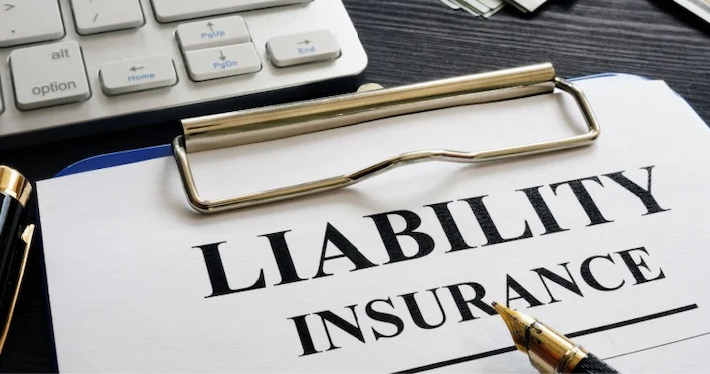In today’s world, where lawsuits can arise from even the most unexpected situations, having insurance is not just a recommendation but a necessity. For businesses, insurance is a key component of risk management, providing financial protection and peace of mind. It ensures that a single lawsuit doesn’t wipe out years of hard work and investment.
For individuals, insurance offers a similar level of protection, safeguarding personal assets against potential claims. Whether it’s a slip-and-fall accident on your property or an allegation of defamation, insurance can cover the legal costs and damages, allowing you to focus on your life or business without the constant worry of financial ruin.
What Is Liability Insurance?

At its core, a well-structured liability insurance policy protects the insured party from the risk of being held legally responsible for injury or damage to another party. This could include bodily injury, property damage, or personal injury, such as defamation or invasion of privacy. Unlike other policies that cover the insured’s own losses, liability insurance specifically addresses claims made by third parties.
For businesses, liability insurance is crucial as it helps cover legal costs and settlements in the event of lawsuits. For individuals, it provides a safety net against potential financial ruin should they be sued for an accident or negligence.
Types of Liability Insurance
There are several types of liability insurance, each tailored to cover specific risks. Understanding these types can help you choose the right coverage for your needs.
1. General Liability Insurance
General liability insurance is the most common type of liability coverage and is essential for businesses of all sizes. It protects against claims of bodily injury, property damage, and personal injury (such as slander or defamation) that may arise during business operations. This insurance is vital for businesses that interact with customers or clients, as it covers a wide range of potential risks, including accidents on the business premises or damage caused by business operations.
Benefits and Coverage:
- Broad Coverage: General liability insurance offers protection against a wide array of risks, including accidents, injuries, and property damage.
- Legal Protection: The coverage includes expenses for legal fees, settlements, and judgments that may arise from a potential lawsuit.
- Reputation Management: By covering claims related to personal injury, such as defamation, general liability insurance helps protect a business’s reputation.
2. Professional Liability Insurance
Professional liability insurance is designed for professionals who provide services or advice to clients. This insurance covers claims arising from negligence, mistakes, or failure to perform professional duties. It’s particularly important for consultants, lawyers, accountants, and medical professionals.
Benefits and Coverage:
- Specialised Protection: Professional liability insurance is tailored to cover the unique risks associated with providing professional services.
- Client Trust: Having this insurance demonstrates a commitment to accountability and can build client trust.
- Financial Security: It covers the cost of defending against claims and any settlements, protecting the professional’s financial stability.
3. Product Liability Insurance
Product liability insurance is essential for manufacturers, wholesalers, and retailers. It provides coverage for claims arising from injuries or damages caused by products sold or manufactured by the business. This type of insurance is crucial in industries where defective or unsafe products can lead to significant legal liabilities.
Benefits and Coverage:
- Comprehensive Coverage: Product liability insurance covers claims related to manufacturing defects, design flaws, and inadequate warnings or instructions.
- Risk Mitigation: It helps businesses manage the risks associated with product recalls or litigation.
- Customer Assurance: Having product liability insurance can enhance a company’s reputation by showing that it takes responsibility for the safety of its products.
4. Employer’s Liability Insurance
Employer’s liability insurance provides coverage for claims made by employees who are injured or become ill due to their work. This type of insurance is often included as part of a workers’ compensation policy but can also be purchased separately to cover additional risks.
Benefits and Coverage:
- Employee Protection: It covers the costs of legal defence, settlements, and damages if an employee sues for work-related injuries or illnesses.
- Business Compliance: In many jurisdictions, having employer’s insurance is a legal requirement, ensuring that businesses comply with labour laws.
- Workplace Safety: It promotes a safer work environment by encouraging businesses to implement proper safety protocols and training.
Key Terms and Concepts in Liability Insurance
To fully grasp the importance of this insurance, it’s essential to understand the key terms and concepts associated with it. Here are some of the most important ones:
- Policyholder: The individual or business that owns the insurance policy.
- Premium: The policyholder’s payment to the insurance company in exchange for coverage is known as premiums. These payments can be made on a monthly, quarterly, or annual basis depending on the agreement between both parties.
- Claim: A request made by the policyholder to the insurance company for payment or coverage after an incident.
- Deductible: The initial amount the policyholder is responsible for paying before their insurance coverage begins. Opting for a higher deductible can lead to reduced premium costs.
- Limit of Liability: The maximum amount the insurance company will pay for a covered claim. This can be on a per-claim basis or an aggregate limit for the policy period.
- Exclusion: Certain instances or conditions that are not included in the insurance coverage. You need to understand what’s not covered by your policy to prevent unexpected outcomes in the event of a claim.
Conclusion

Insurance is a vital part of both personal and business financial planning. By understanding what exactly this type of insurance is, you can make informed decisions about the coverage you need.
Whether you’re a business owner looking to protect your company or an individual seeking peace of mind, insurance offers the security necessary in today’s unpredictable world. It’s not just about compliance or ticking a box—it’s about ensuring that you, your family, or your business are protected against unforeseen risks.



